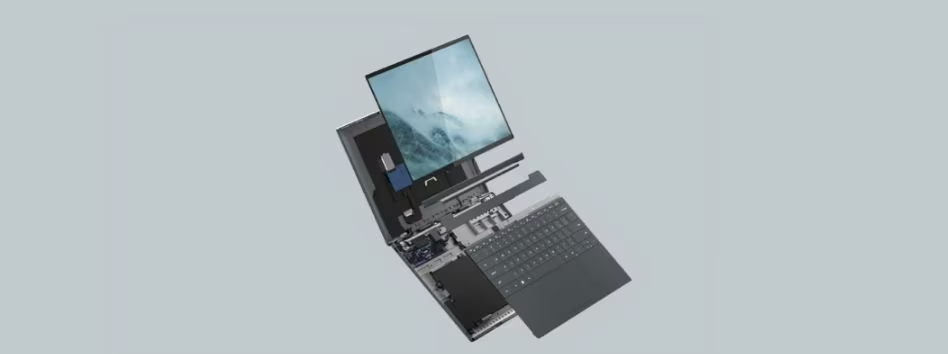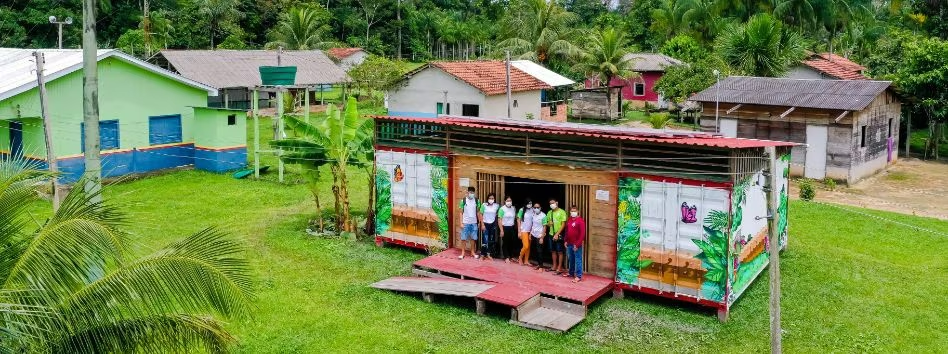
While sustainability might be one of the most popular bandwagons in town, Dell Technologies is far from being a latecomer to the journey.
In fact, Dell Technologies scorecard on all ESG fronts (i.e., environmental criteria, social criteria, and governance) is remarkable.
Voted America’s Most Loved Workplace in 2022, Dell Technologies scored 100% in the DEI (Disability Equality Index) Best Place to Work for disability inclusion in 2021 and likewise for LGBTQI+ Equality in 2022. Last year they were also awarded an EcoVadis Platinum medal 2022 for scoring in the top 1% of companies assessed across five major themes: environment, sustainable procurement, labour and human rights, ethics, and diversity and inclusion. The (extensive) list of Dell Technologies recent awards goes on.
All of this speaks to a company that has spent a lot of time, effort, and money on being the best it possibly can be. This is all great, but why is sustainability in the technology industry so important to us — and you?
McCrindle’s Trends of the Year for 2023 lists virtuous consumerism as one of the 8 trends to watch out for, saying, “Consumers are using their spend to bring about change in the world. The bottom line is it is not just about the bottom line.” McCrindle also points out that what we’ve long believed consumers care about (i.e., price), isn’t all they care about anymore. Price, it turns out, is only a segment of the whole picture – with environmental impact, sustainability, circular economy, and other altruistic reasons making up the rest.
McKinsey reports that they’ve “…found that upward of 70% of consumers surveyed on purchases in multiple industries, including the automotive, building, electronics, and packaging categories, said they would pay an additional 5 percent for a green product if it met the same performance standards as a nongreen alternative.”
All of this points to customers who are more aware, and businesses who are more pressured to put their money where their mouth is and offer more sustainable products.
Deloitte says that 98% of consumers believe that brands have a responsibility to make the world better – and we must say, Dell Technologies has listened. Long and hard.
Dell Technologies is already planning for 2030 and beyond, focusing on advancing sustainability, cultivating inclusion and transforming lives, all underpinned by their commitment to upholding ethics and privacy.


Dell Technologies has opted to leave the linear economy behind and embrace a circular one. The difference?
The linear economy focuses on profitability – where raw materials are mined and processed into a product that’s thrown away after use. Think of those notorious plastic shopping bags.
By comparison, the circular economy targets sustainability and closes the cycles of all these raw materials. This requires more than just recycling. It changes how value is created and preserved, making production more sustainable and rethinking business models.
Dell Technologies has a heritage of sustainable practices and has taken pride in being a conscious steward of their technology and products, designing with the entire life cycle in mind. Since 2007, the company has . In addition, on Earth Day 2019, Dell Technologies achieved its 2020 goal of using 45 million kg of sustainable materials in its products, including recycled-content plastics. Currently, that total is now 179.8 million kgs.
Dell Technologies is focused on refining the circular economy across its manufacturing, sales, and recycling processes. Materials are a key source of innovation: recycling plastics and other materials from old computers and identifying opportunities to use waste materials (like ocean-bound plastics) as resources that can be brought back into the economy is critical.
However, Dell Technologies’ smart thinking goes beyond this.
In 2021, Dell Technologies introduced Concept Luna, its breakthrough sustainable PC design. The concept eliminates the need for adhesives and cables and minimizes the use of screws – making it easier to repair and dismantle a system. It’s anticipated that Concept Luna could dramatically simplify and accelerate repair and disassembly processes, making components more accessible and expanding opportunities for reuse.
It currently takes recycling partners over an hour to disassemble a PC held together with screws, glues, and various soldered components. Dell Technologies’ evolved Concept Luna design has reduced disassembly time to mere minutes. They’ve even commissioned a micro-factory to guide the Dell Technologies’ design team, resulting in a device that robots can quickly and easily take apart.
Data#3 is known for supporting our community and environment (it’s our thing). We’re committed to a sustainable environmental, social and governance (ESG) framework that supports our business, people and stakeholders.
So, when we choose to partner with technology vendors, we do so carefully. We look for an equivalent or greater level of commitment and a genuine desire to make the future brighter.
From device design to disposal, recycling to reclamation – Dell Technologies lives and breathes the sort of attitude and approach we all love.
Throughout our long history, we have made many decisions that support our community and environment. Our vision is to harness the power of people and technology for a better future. We commit to a sustainable environmental, social and governance framework that supports our business, people, and stakeholders.